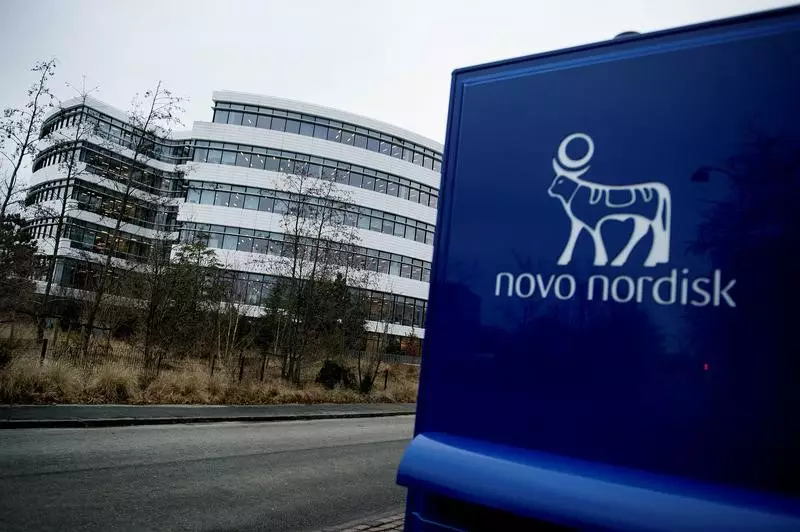On Friday, shares of Novo Nordisk, a prominent player in the pharmaceutical industry, experienced a notable decline of 3.6%. This downturn can be attributed to the recent announcement by the U.S. Department of Health and Human Services (HHS), which revealed that the company’s flagship drugs, Ozempic and Wegovy, are among 15 medications under consideration for price negotiations as outlined by the Inflation Reduction Act. This decision is significant, not only for the companies directly involved but also for the healthcare market at large. With Novo Nordisk’s stock sinking over 24% for the year and 39% in the last six months, the long-term implications of these negotiations could pose substantial challenges for the company’s financial forecasts.
The current negotiations come during the second cycle aimed at alleviating the financial burden of high prescription drug prices for Medicare beneficiaries. The inclusion of 15 drugs, which collectively account for around $41 billion in gross Medicare Part D costs, indicates a proactive governmental approach to controlling healthcare expenditures. HHS Secretary Xavier Becerra emphasized the importance of these negotiations, arguing that they serve to enhance access to innovative, life-saving treatments while simultaneously lowering costs for patients reliant on Medicare. Such initiatives reflect a broader trend in U.S. healthcare policy, moving away from unchecked drug pricing to a more regulated approach aimed at financial sustainability for its programs.
Novo Nordisk’s Ozempic and Wegovy have been key contributors to the company’s revenue growth, particularly in the realms of diabetes and obesity management. With the HHS signaling negotiations for these medications, there exists a legitimate concern about the potential implications on future revenue. The spotlight now shines on the prospect that reduced prices could lead to diminishing returns for Novo Nordisk, particularly if these drugs remain popular among prescribing physicians and patients. The balance between maintaining market share and managing profitability could become increasingly complex as the outcome of these negotiations unfolds.
The implications of the HHS announcement and the ensuing negotiations represent a critical juncture for Novo Nordisk. CMS Administrator Chiquita Brooks-LaSure conveyed optimism about the overarching benefits of the Medicare Drug Price Negotiation Program, indicating that its goals align with ensuring the longevity and efficiency of Medicare for future generations. However, as a publicly traded company, Novo Nordisk must navigate these regulatory waters carefully. Stakeholders will be keenly observing how the company responds to potential pricing pressures and whether it can sustain its growth trajectory amidst heightened scrutiny.
The recent drop in Novo Nordisk’s share price underscores the intricate relationship between pharmaceutical companies and governmental regulations aimed at curbing drug prices. As negotiations progress, the company’s adaptability and strategic planning will be paramount in navigating the challenges posed by such policy changes. Investors and analysts alike remain cautiously optimistic, recognizing that while regulatory pressures may pose immediate challenges, they could ultimately lead to a more equitable healthcare landscape.

